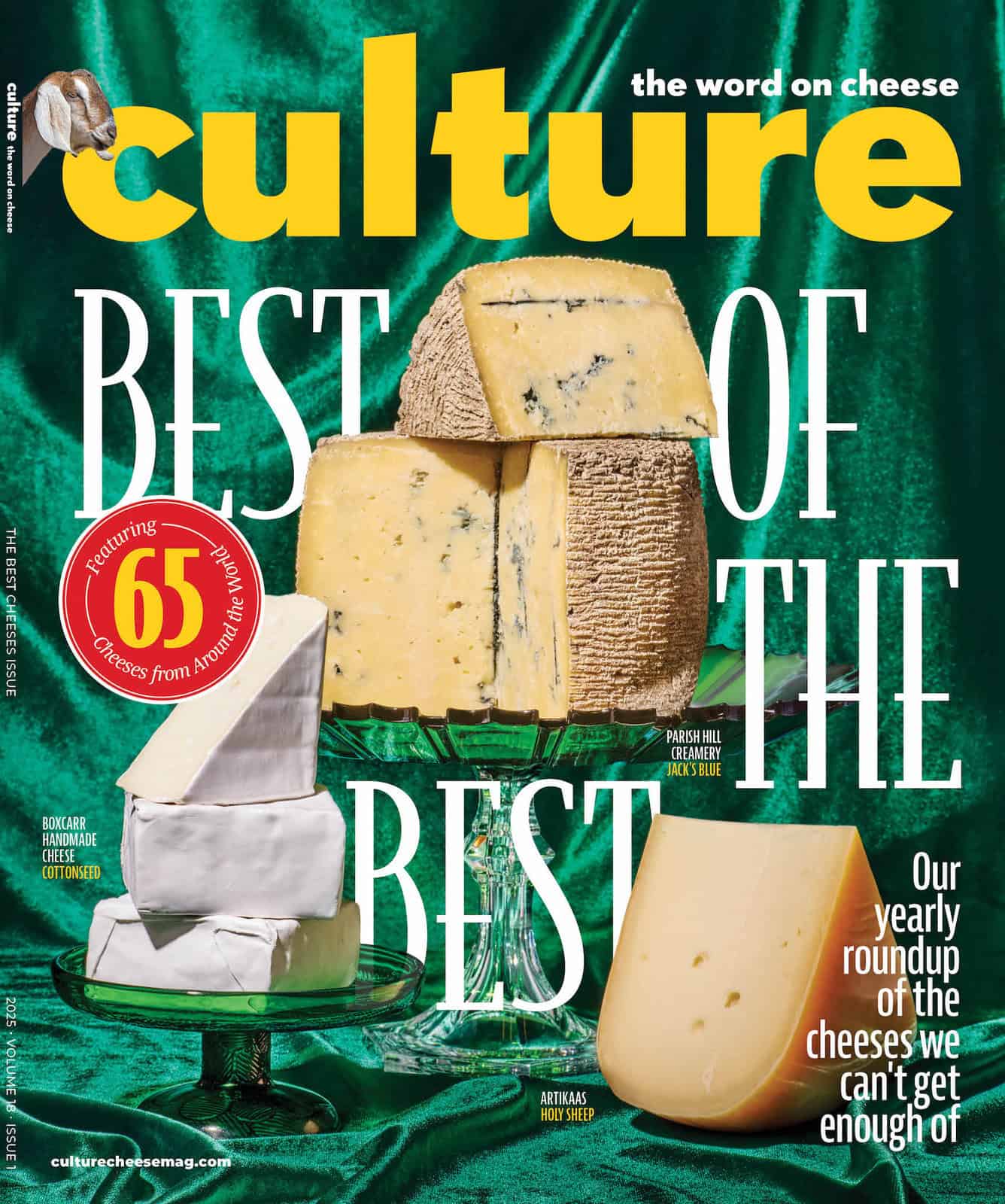
In an e-mail sent today to cheesemongers and distributors, Uplands Cheese owner Andy Hatch announced they will not be producing any Rush Creek Reserve this season. The soft, washed-rind raw milk cheese is usually made with autumn milk (which is naturally higher in proteins and solids and therefore perfectly suited to a softer cheese), but difficulty dealing with the FDA and other food safety officials have Hatch backing off this year: “Food safety officials have been unpredictable, at best, in their recent treatment of soft, raw-milk cheeses, and until our industry is given clear and consistent guidance, we are forced to stop making these cheeses,” wrote Hatch in the e-mail.
Reading these words, it’s hard not to recall the recent confusion over the FDA’s stance on aging cheese on wooden boards. Although aging cheese on wood is a traditional practice and has yet to sicken anyone, the FDA insisted wood could not be adequately cleaned, and therefore presented a danger to cheese consumers. Later on, the FDA recanted, and even met with the artisan cheese community at the American Cheese Society Conference, stressing their commitment to work with cheese folks, not against them.
While the outcome of the aging-cheese-on-wood debacle was mostly positive, this unclear and shifting attitude towards US artisan cheesemakers and their practices is nothing new for food safety officials — and exactly why cheesemakers such as Hatch are hesitant to produce controversial (at least in the eyes of the FDA) cheeses: “We read one thing, hear another thing from an inspector visiting our creamery, and then hear something altogether different from the Deputy Commissioner when he spoke to the ACS a few weeks ago,” said Hatch in an interview with culture. “As Congressman Welch said during the wood board confusion, the FDA’s right hand doesn’t seem to know what its left hand is doing. This has been the case with wood boards and with other recent, regulatory positions, such as the mixed messages related to tolerance limits for non-pathogenic bacteria.”
Unclear policies regarding make processes and affinage mean crafting an aged, raw-milk cheese like Rush Creek Reserve is like playing Russian roulette — by the time the cheese is ready to be sold, it may not be legal anymore.
“As a cheesemaker and business owner, I have no problem with regulatory oversight — I just need to know what the rules are and how they’re going to be interpreted by the inspectors enforcing them,” says Hatch. “That clarity is what’s missing right now, and that makes the financial risks associated with these cheeses intolerable.”
Hopefully the government will clarify their positions on food safety as it relates to cheese as soon as possible. Hatch hopes for within a year, but acknowledges this may not be possible:
I’d like to think that within the next year FDA will have a clear and consistent policy for how they’re going to approach traditional cheesemaking, but the much-delayed rollout of FSMA [Food Safety Modernization Act] doesn’t bode well for that. Many of us in the industry — primarily through the ACS — are engaging the FDA over this, so at least a dialogue has begun. We’re all pushing for clarity as soon as possible, so we can make the kinds of plans that are necessary to run business.
This post was updated on 8/15 to include additional comments from Andy Hatch. Please do not hesitate to contact us if you feel you have further valuable information or comments.




Fantastic job here. I definitely enjoyed what you had to say. Keep going because you absolutely bring a new voice to this subject. Not many people would say what youve said and still make it interesting. Well, at least Im interested. Cant wait to see more of this from you.
ecco uk sale http://www.napfashion.co.uk
Sad business. Rush Creek Reserve is one of the best cheeses in America and Andy is one of the most conscientious cheesemakers.